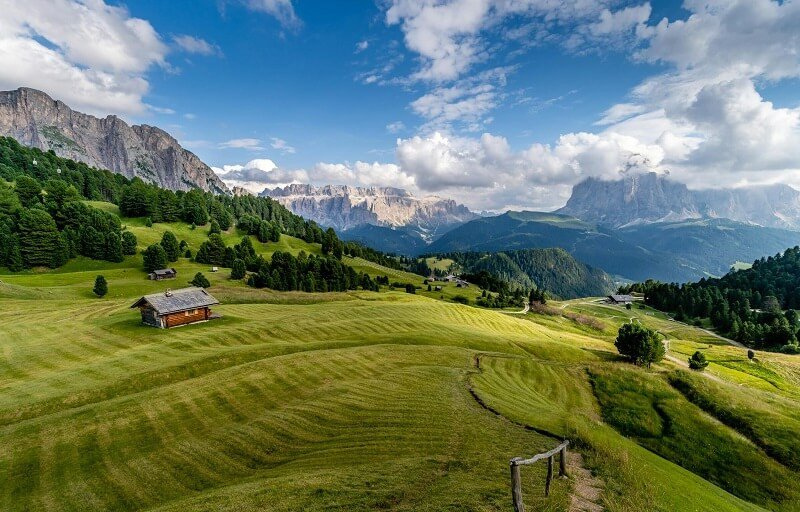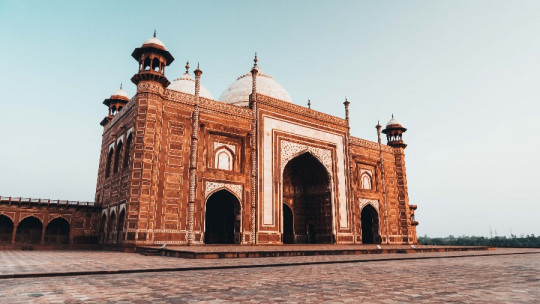
Becoming a pilgrim is embarking on a journey that transcends the physical. It is a journey that penetrates the soul, the deepest desires of the human being. It is not just about traveling kilometers, but about moving towards a transformative encounter, whether with a faith, a belief or with oneself, so if you are on the wave of self-knowledge this interests you.
If you made it this far, you’ve probably heard hundreds of fascinating stories. That of that young woman who returned convinced that she had witnessed a miracle that revived her faith; that of that man who, without much initial conviction, found profound self-discovery along the way; that of that woman who returned with a renewed perspective on life after connecting with other cultures and worldviews.
So, What motivates so many people to pilgrimage? The reasons are as diverse as the number of people who undertake them… And we will tell you about this today in this article. Join us!
Reasons to pilgrimage
In theory, a pilgrimage is to undertake a journey, usually on foot, to a sacred place or place of special religious significance, for devotional purposes, penance or to ask for a favor.
It is a practice that has developed in various cultures and religions throughout history, and that continues to have a great impact on the lives of thousands of people around the world. But in practice, pilgrimage is a behavior that is experienced as something that goes far beyond the act of moving through a territory. It is an experience designed by and for self-realization that is, the need to give meaning to one’s own existence.

There are as many reasons to pilgrimage as there are people in the world. Some seek answers to existential questions, others long for an encounter with divinity, while others simply seek adventure and personal challenge.
Whatever the motivation, pilgrimage gives you the opportunity to connect with what is essential, to get rid of what is superfluous and to rediscover yourself in an environment of introspection and reflection. It is a journey that transforms you, that leaves a mark, that invites you to rethink life and discover new horizons.
Next, we will show you some of the most frequent reasons that motivate so many people to go on pilgrimage.
1. Reaffirm your faith
For many pilgrims, the journey is a way to strengthen their faith, connect with the divine and be grateful for the blessings received. Whether following in the footsteps of religious figures or visiting sacred places, pilgrimage becomes an act of devotion that renews spiritual connection.
Now, as we will see, not only people who are or have been strong believers in one or more gods make pilgrimages.
2. Face a new personal challenge
For others, motivation lies in personal challenge. Overcoming kilometers, facing adverse weather conditions or crossing demanding terrain becomes a metaphor for life. Each step conquered is a personal victory that strengthens self-confidence and the ability to overcome obstacles.
3. Know yourself better
The path can also be a space for introspection and self-discovery. Far from daily routines and responsibilities, the pilgrim faces himself, his fears, his strengths and his weaknesses. It is an opportunity to redefine yourself to discover new talents and to find the true meaning of life.
4. Add adventure to life
For adventurous spirits, pilgrimage is an opportunity to live unique and unforgettable experiences. Getting to know new places, cultures and landscapes, trying new foods and customs and sharing moments with people from all over the world are just some of the attractions that make this type of trip an enriching and stimulating experience.
5. Connect with new friends
Along the way, friendships are forged that last a lifetime. Share experiences, support each other and overcome challenges together creates a special bond between pilgrims a connection that, at the end of the route, becomes an invaluable treasure for life.
6. Explore new cultures
Immersing yourself in different cultures, appreciating their traditions, customs and way of seeing the world is one of the most enriching experiences that pilgrimage offers. It is an opportunity to break barriers, to broaden the mind and to develop greater tolerance and understanding towards diversity.
7. Transform your life
Returning from a pilgrimage is not just returning home. It is returning transformed, with a new perspective on life, with renewed faith in oneself and with deep gratitude for the experiences lived. It is a journey that leaves its mark.
The Camino de Santiago: a transformative route
In the Spanish-speaking cultural context, Few pilgrimage routes can compare to the Camino de Santiago.
Every year, thousands of people from all over the world embark on this route, through a centuries-old pilgrimage that crosses northern Spain. In 2023 alone, more than 446,035 pilgrims requested the Compostela, according to the Santiago de Compostela Pilgrim Office.
But what makes this path so special? Stop, this is important to know: Nobody leaves the Camino de Santiago as they enter. There are many reasons why this happens, and we will tell you about them in the following lines.
The Camino de Santiago is an ancient pilgrimage route that leads to the cathedral of Santiago de Compostela in Galicia, where the remains of the apostle Saint James the Greater are believed to be buried. Its origin dates back to the beginning of the 9th century, when the tomb was discovered. This discovery transformed the city into a pilgrimage point for Christians from all over Europe, who began to travel various routes that crossed Spain to reach the sacred site. Over time, these paths were consolidated into what we know today as the Camino de Santiago, a network of routes with deep spiritual and cultural meaning, and that have their “trunk” on the Cantabrian coast.
The primitive Camino de Santiago is not just any trip, among other things because of its antiquity and cultural roots in Europe. In fact, it is often seen as an inner journey, a path to self-discovery. As you go through the miles, you find yourself, your strengths and weaknesses. It is a time for reflection, for introspection, to connect with your emotions and with what matters most to you in life.
This route is also a metaphor for life. Perhaps that explains why thousands of people who are not particularly religious take this path at least once. In it, you will face obstacles, both physical and emotional. Climbing steep hills, enduring adverse climates or dealing with physical fatigue are just some of the challenges you will encounter. However, each obstacle overcome is a personal victory that teaches you to be stronger, more resilient and more capable.
The Camino de Santiago is also a space for spirituality. Whether you have a religious faith or not, the path invites you to connect with something bigger than yourself. You can find peace in prayer, in contemplation of nature or in simply connecting with other pilgrims. Its popularity is such that a whole series of institutions, stories and traditions have been generated around it that pilgrims encounter as they travel for kilometers.
There are many pilgrims who can assure you that the experience transforms you, changes your perspective on life and leaves an indelible mark on your heart. It’s a journey that reminds you of who you are, what you’re capable of, and what really matters in life.
If you are looking for a life-changing experience, the Camino de Santiago is for you. It is a journey that challenges you, inspires you and transforms you. No matter your age, your physical condition or your religious belief, the path has something to offer you.
As you see, pilgrimage is a journey that invites reflection, introspection and personal growth. Do you have in mind taking on this challenge?








